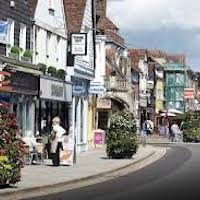Team Building in Salisbury
If you are not quite able to decide which of our activities would be suitable for your needs, you can also opt for a multi activity day incorporating outdoor activities, such as Team Zone Challenge, Cryptic Challenge, and Chain Reaction among others. There is really nothing like getting out into the fresh air and heading off for pursuits. Many of our indoor activities, such as Flatpack, Rollerball, and Chocolate Challenge can also be conducted to suit large or small groups as well as varying budgets, offering different levels of fun and challenge. The mystical landmarks as well as monuments in this medieval city can be perfect for a Treasure Hunt.All our clients, like Pepsi, Radisson, Lloyds Bank, Bradford & Bingley and several others have been pleased with our professional and friendly service and our attention to detail.For more ideas give our sales team a call on 0845 680 6109 and discuss your requirements, fill out a quick enquiry or take a look at some of the other great events we run in Salisbury!Client Case Study
Our indoor activities are flexible and can be as short or long as you want them to be. Some of our popular and fun events are Chain Reaction, Cryptic Challenge and Chocolate Challenge providing indoor fun and supporting initiative, creativity and better collaboration. The venues in Salisbury also provide the perfect backdrop for some of our top selling outdoor activities like Decision Wheel and Flatpack, which are both challenging and entertaining and various other games where tasks have to be completed under pressure.
History of Salisbury
The history of Salisbury dates back to 2500 years with a fort belonging to the Iron Age about two miles from the town center today. A settlement arose near the old fort during the 11th century with a market and mint in the town. The new Salisbury town got its charter during 1217 and used to have fairs and markets, with people coming over from Wiltshire in the Salisbury fair. The town was on the road between London to Exeter and was very successful. Wool was produced and exported through Southampton and it became one of the biggest towns of the country during the 15th century. However, the wool industry declined during the 17th century and it remained a market town. The Industrial Revolution and the arrival of the Railways during 1847 brought with it many improvements to the town.





